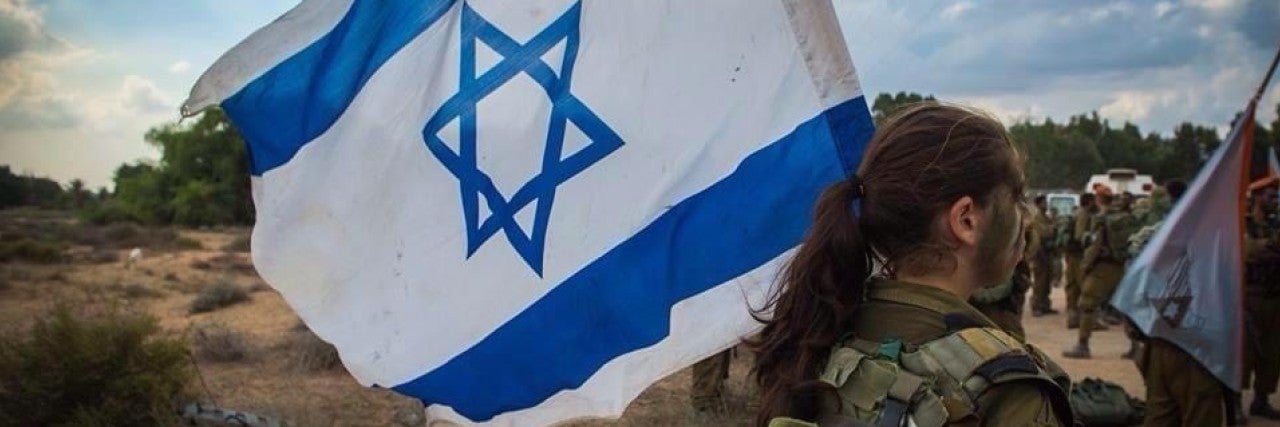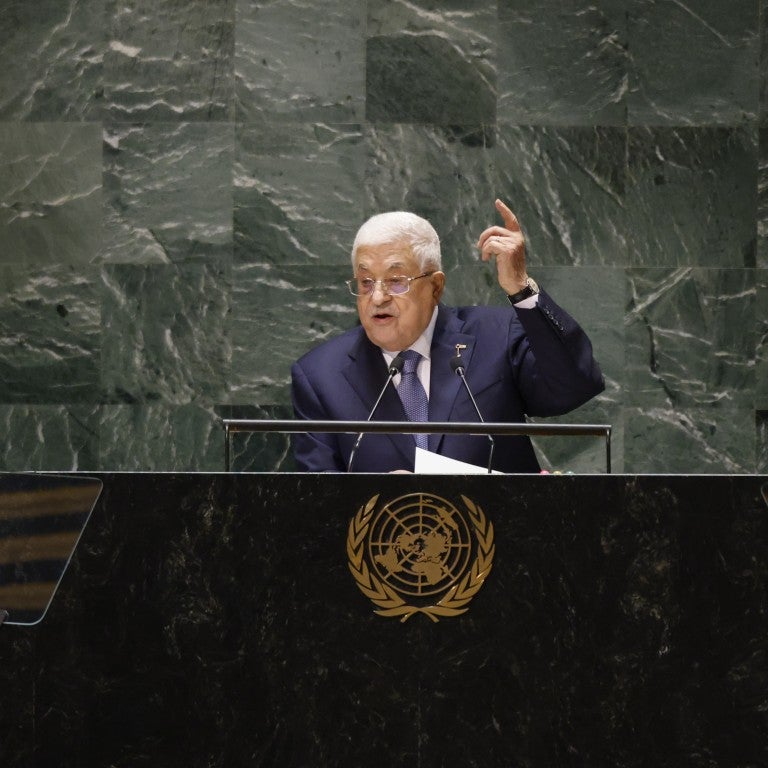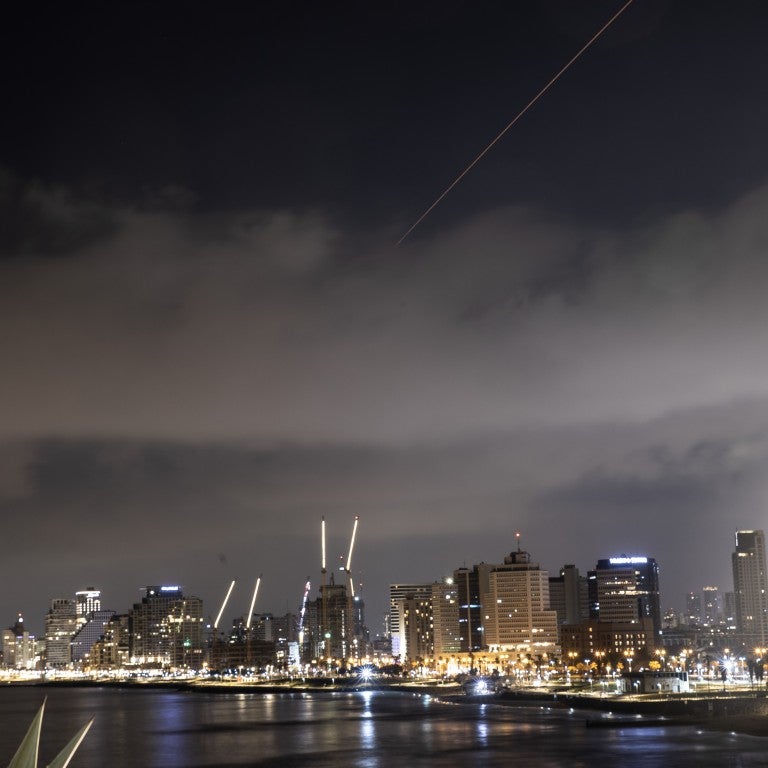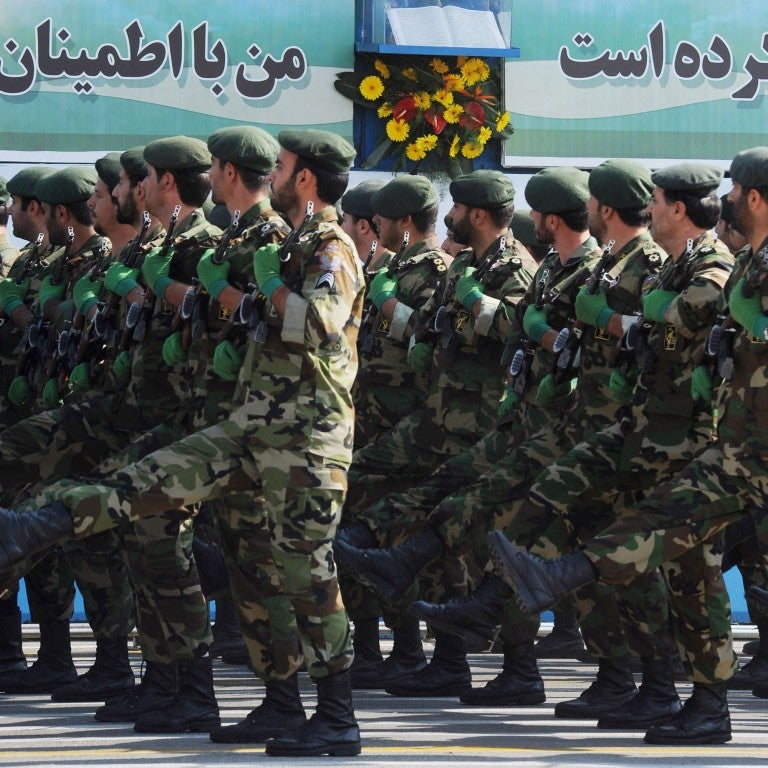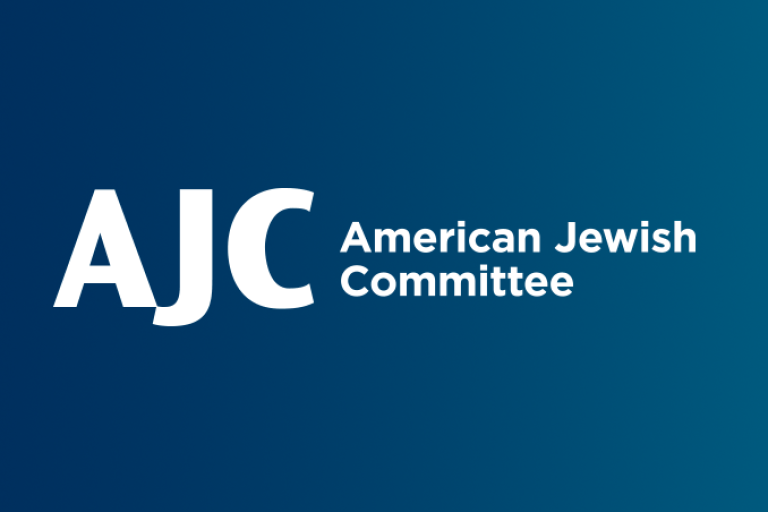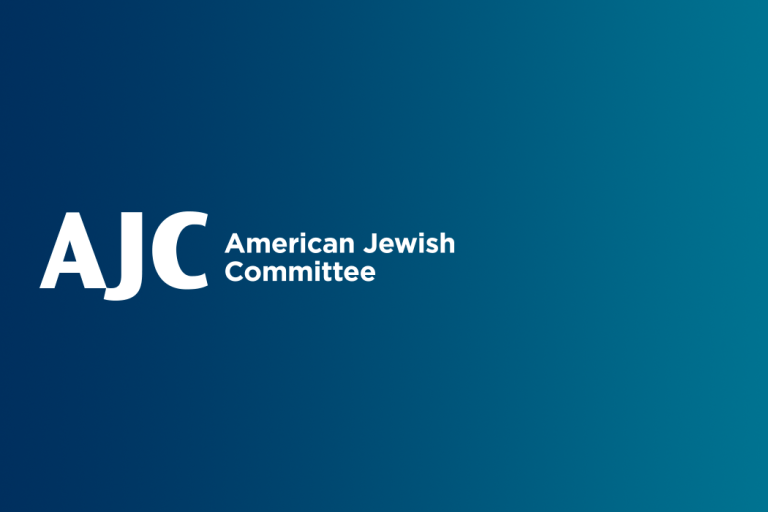October 12, 2023
Mai Gutman, 28, a graduate student and member of AJC's Campus Global Board, had planned to join her friends at the Supernova music festival near Israel's border with Gaza on Saturday, October 7. But when relatives came to visit, she decided to celebrate Shabbat and Simchat Torah in Jerusalem instead—a change of plans that saved her life. At least 260 young Israelis and people from all over the world were brutally murdered by Hamas terrorists at the festival. Mai, an IDF reservist who was just recently called up, joins us from her base to talk about waking up in Jerusalem the morning of October 7, the harrowing messages that she received from friends, and the four days since.
*The views and opinions expressed by guests do not necessarily reflect the views or position of AJC.
Episode Lineup:
- (0:40) Mai Gutman
Show Notes:
Donate:
Learn:
Song credits:
-
“Hatikvah (National Anthem Of Israel, Electric Guitar)”; Composer: Composer: Eli Sibony; ID#122561081
Follow People of the Pod on your favorite podcast app, and learn more at AJC.org/PeopleofthePod
You can reach us at: peopleofthepod@ajc.org
If you’ve appreciated this episode, please be sure to tell your friends, and rate and review us on Apple Podcasts.
Transcript of Interview with Mai Gutman
Manya Brachear Pashman:
The techno music festival near Israel's border with Gaza was billed as the essence of unity and love in a breathtaking location. At least 260 people were brutally killed by Hamas terrorists there on Saturday morning, October 7th. 28-year-old Mai Gutman was supposed to be there and had already joined the WhatsApp groups of friends and fellow concert goers to keep in touch. But she did not go. Mai, a member of AJC's Campus Global Board and a reservist who was just recently called up, joins us from her IDF base to talk about waking up in Jerusalem the morning of October 7th and the four days since.
Mai, welcome.
Where are you now?
Mai Gutman:
I live in Herzeliya. Currently, located in a place that I can't exactly disclose, but I am in the north of Israel.
Manya Brachear Pashman:
Are you able to share what you're seeing and hearing all around you?
Mai Gutman:
Currently where I am I mean, we can hear the news, we can hear what's going on around us in the South as well. Even though we are stationed in the north. Today [October 11, 2023] was a pretty hectic day in terms of developments on the northern border. We had a day pretty much full of running to the bomb shelters and staying there, which indicated some sort of an escalation. I can't go into too many details, obviously. But we can feel the escalation coming and we're prepared for it.
Manya Brachear Pashman:
So you were born in Israel but grew up mostly in Melbourne, Australia. How did you end up back in Israel?
Mai Gutman:
I moved to Australia with my parents when I was only 18 months old, and I had grown up in Australia. But I had always felt a very strong connection to Israel. Something that really I couldn't put into words, I couldn't explain, it was just an inherent feeling. And when I was 18, I just decided that I'm going to go to Israel, I'm going to make Aliya and I'm going to draft into the army just because I think, you know, for me, it was important, if I'm going to live there, then I definitely need to carry the burden and be a part of society in that way and contribute. Because I find it difficult to comprehend living here, and not being a part of that very fundamental part of people's lives. It's a very crucial part of people's lives around here. And I feel like I wouldn't really be able to fit in and understand, you know, Israeli society, and also the Israeli mentality without having that experience. And I also just think that it's important, all in all, just to contribute. And that's I guess, how I got into the army. And I served for almost three years in a combat unit in search and rescue.
For me, at the time, when I first drafted it was really the first years of women going into combat units. So it was a very kind of still a new idea. And I was really eager to jump on that and see how I go.
Manya Brachear Pashman:
So with no immediate family there, does that qualify you as a lone soldier?
Mai Gutman:
Yes, absolutely. So I enlisted with Garin Tzabar, which is a program that brings young adults from all around the world who want to make Aliyah and specifically to draft into the IDF, but don't have any immediate family with them. So Garin Tzabar provides that network of family and support, I guess, to deal with, first of all, all the bureaucracy that comes with moving to another country and drafting into the military. But also, you know, you get put on a kibbutz and you get given a host family, which is really nice. And it's just nice to have that initial support network because it might feel a little bit lonely when we first arrive. But now we're really like a one big family and we still keep in touch to this day, even though it was I think, 10 years ago, almost that we were all together on the kibbutz.
Manya Brachear Pashman:
So where were you when this escalation first began on October 7?
Mai Gutman:
I want to preface this by saying I was in Jerusalem on October 7, I was celebrating the chag of Simchat Torah, and the Sabbath with my family with my cousins. And also I had cousins that actually came from America, to join us in Jerusalem was a very big occasion. And that's really, I think, the only reason why I decided to come to Jerusalem and spend time with family because there was a very big music festival happening that weekend. And I was very keen initially, to go to that music festival. I had initially planned to go with my friend. And I joined, you know, the WhatsApp groups to try and find a good crew to go up with and find a means of transportation and all that. And then yeah, literally, you know, I think it was a couple of days later that my aunt had called me and she said, Hey, listen, you know, your cousins are coming. We're all going to be in Jerusalem at the same time. Like, let's, let's all do hog together, we really want you to come and be with us. And I said, Well, obviously, I mean, I'd rather be with family on such a unique occasion, I can go to a music festival any other time.
So you know, I just kind of dropped those plans and ended up doing it in Jerusalem and ended up spent spending that weekend in Jerusalem, which was, I think the decision that ended up saving my life. And the morning of October 7, I had woken up to the sound of sirens, of Red Alert sirens, which is the sirens that go off when there's a rocket that's approaching an area in Israel, which was quite confusing to me. It was about 8am. And it was quite confusing to me, because in order for rocket sirens to be going off in Jerusalem, for me, I had to put quickly two and two in my head and say, well, that means that there's a lot more going on down south.
So I you know, being a Sabbath day being a chag day as well in my family being, you know, Orthodox and observant of that day, we didn't have our phones at the ready. We didn't have the news on or anything like that. So I had decided to quickly jump on and see what was going on. Because obviously it was a lot more serious than what I thought.
And I opened my phone and I'm reading the headlines in absolute disbelief, in shock. Terrorists had infiltrated into Israeli territory, they had massacred people on the streets, innocent civilians. They had burned houses, they'd gone into bomb shelters and literally just gunned people down.
I think the most shocking part, though, was when my phone started pinging with those WhatsApp groups that I was saying earlier that I was part of a music festival. And the messages started coming through saying Help us help us You have no idea that here they're gunning us down. They're shooting at us. I'm bleeding, I'm hurt. Can someone call the police, call the army. My friend’s dead. I think someone help me, someone help me. And other people are texting like you know some people went some people did it's pretty big Whatsapp group. What's going on? Who do we call? No one at the police station is answering. Nobody in the army bases are answering–why? Because terrorists had already commandeered their bases. They had murdered everyone. Almost everyone in those bases in order to get through. And they've made their way to this music festival of peace and love where people were celebrating. Young people my age, young people, my friend’s age, my friends as well, who were there who came to have a good time. And you see them in this footage that they're sending through in the early hours of the morning, sending through footage of, of running of bullets, and they're dressed in their costumes, their beautiful faces made with colorful face paint.
And you can see that they were just having a good time and tears streaming and screaming and running and shooting in the background. And it's like a war zone. It was like a scene from Armageddon. It looks apocalyptic. And I was just shaking, holding my phone shaking. What do I do? How do I feel helpless, I have nothing that I can do. And in the meanwhile, there are sirens going off in the background rocket rocket attacks on Jerusalem, rocket attacks down south. And you just feel like, Oh, my God. And you've just woken up just so you understand. Like you've just woken up. It's so overwhelming.
Manya Brachear Pashman:
Oh, Mai. I can’t imagine your struggle in those moments to really distinguish between nightmare or reality. What did you do to try to make sense of things?
Mai Gutman:
I turned on the news. And on the news, they're saying, Oh, we think that, you know, there are rocket sirens. And we think that there might be something going on in the South that maybe terrorists have entered. We're not sure. And nothing about the music festival. The music festival, I think was only broadcasted the news about the music festival. In the late afternoon. It started being broadcasted. And I from the morning, I've already known about this, the people are literally bleeding out people are dying, as we speak while we're hiding in bomb shelters, people are dying. And and what do you do? What do you do? What do you do in that situation? You feel completely hopeless. And that is, I think, until now, the feeling that most Israeli civilians, if not all, are feeling we are feeling helpless, almost betrayed by a colossal failure on the part of the Israeli military on the part of the Israeli intelligence, that how could this happen? Without you know, we brag we say, you know, we've got the strongest military? And how could this possibly happen, with the most deaths–the most Jewish deaths to occur in a single day, since the Holocaust? Unfathomable.
Manya Brachear Pashman:
How has your IDF service impacted your connection to Judaism and your connection to Israel?
Mai Gutman:
It definitely changed me, it definitely strengthened I think, my Jewish identity and my Zionist identity. It gave me immense purpose. Also, as the granddaughter of Holocaust survivors, especially one of the largest families of Holocaust survivors, in Melbourne, that really, I think established the community in terms of, you know, our schools, our shows, our youth movements, we had a very family has a very big part to play, and I'm very privileged to be part of that family.
But for me, it was, you know, to draft into the army. It's something that I felt as something of an obligation almost because I knew, and we can really take this situation as an example. But I knew that if I don't do something, if I'm not part of the solution, or the help, I guess, then we might not have a country, which means that we may have a Holocaust again.
Ad we saw the effects today, of the very real existential crisis and threat that we face in Israel, along our borders. And if anything was to happen, if we let our guard down for even a second, this is the result. We don't have an alternative. We don't. We have a purpose.
And my purpose, I feel everyone has a purpose, but my purpose that I genuinely feel, and I this was really strengthened in the army was when I swore allegiance to the army and to the state. I felt within myself that this is something that I won’t only interpret in terms of my service and my physical military service, but I'll take with me to my grave I will do this in any capacity that I can.
I work in Hasbara. It's my passion to defend the state because I just know that we have no other alternative without it, the alternative that we have is persecution, as the Jewish nation has faced for many years. And that's not an alternative we can accept.
Manya Brachear Pashman:
Do you feel like you're at home right now?
Mai Gutman:
Absolutely. I feel at home. I've never felt more at home than I have in Israel. When I come to Israel, it's an immediate relief, a sense of relief in my heart. It's like something when I live abroad, or when I'm abroad, there's a constant sense of yearning, that I can never shake, doesn't matter what I try, it doesn't matter how many good people are surrounding me and my loving family, as much as I love them so much. It'll never fill that void that I have that's really only filled when I'm in Israel, and I can't explain it sounds–I don't know, spiritual, I guess, but that it is what it is. And I feel very comfortable here. Despite the chaos that's going on around us this is I know that I am where I need to be.
Manya Brachear Pashman:
But you’re not just living in Israel. You’re serving your nation, you’re now defending it during one of its most dire moments in modern history.
Mai Gutman:
I mean, until I got called up, I was sitting on shpilkes, I couldn't even imagine like I was just what can I do, I went to go to the supermarket and I bought a bunch of like a huge carton worth of stuff, for the soldiers that were already serving that were already called up. I went to go help pack boxes, I felt so helpless, though I really was just waiting for the call. I had been on standby already from Saturday. Standby, obviously is just when your bags have to be packed, don't know when you're gonna be called. And it could be at any time, it could be never at all.
So I am happy to just be part of a very strong nation, a very strong military. Despite what's happened recently, I do still believe that our nation is strong and our military is strong. And we will get through this, we will overcome this. Because as we can see, I mean, you know, this whole year, we've been crying over internal division over the judicial reforms in Israel. And it just goes to show you know, what tragedy, unfortunately, that it has to come to tragedy and to bring us together.
But at the end of the day, when it comes to real stuff, when it comes to the existential threats and the the things that affect us all, it shows that we are bound together and we are strong together. And everybody doesn't matter what your religious political affiliations are. We are all in this together. And everybody's banding with us together. And it's so special to see and it's only in Israel that we can see such a special and unique form of unity.
Manya Brachear Pashman:
Is there anything else that you want Americans or Australians to know, people who are outside of Israel– anything that you want them to know about what's happening there?
Mai Gutman:
I just want you guys to know, whoever's listening here. I know that it's, it seems very, it is very hard, doesn't just seem, it's very hard. The situation is unlike anything that we've seen before. We've never experienced anything like this, especially not in, in our recent history. But I want you to know, and I know it feels difficult being so far away, because I've been there. It's difficult to report on things so far away, but your support, and your raising awareness, your hasbara, your social media engagement. It means a lot. Your thoughts and prayers mean a lot.
We feel your prayers, we feel your presence with us, we feel you standing behind us and it's like a whole other army standing behind us. It might feel like you're not doing enough or you're not doing anything at all, really. But honestly, it's more than what you think, it's more than what you believe. So just stand by us. And don't give up hope because we certainly aren't. And we can't, we don't have that luxury of giving up hope.
Our entire nation is built on hope. And that's where our resilience comes from. So be strong. We will win this, we will get through this. By hook or by crook. We'll make it through as long as we all stick together as long as we make sure that we count what's important. We remember what's important, who's important to us, hug your loved ones. Because currently there are so many there are over 1300 families around Israel that are currently grieving and mourning and they don't get that opportunity.
So make sure to tell your parents you love them. Tell your kids you love them, your sisters, your brothers, your aunts, your uncles, your cousins, your friends, because not everybody has that luxury. And, and yeah, we'll do what we can over here so you do what you can over there.
Manya Brachear Pashman:
Mai, thank you so much. Stay safe. Thank you for your service, and we will certainly be praying for you.
Mai Gutman:
Thank you.
Manya Brachear Pashman:
American Jewish Committee's Israel Emergency Campaign has already raised more than $1.5 million. Funds that have already gone to Israeli hospitals, efforts to evacuate the elderly, NGOs such as IsraAID, providing support for children, and friends of the Israel Defense Forces. If you would like to donate, go to AJC.org/SupportIsrael.
